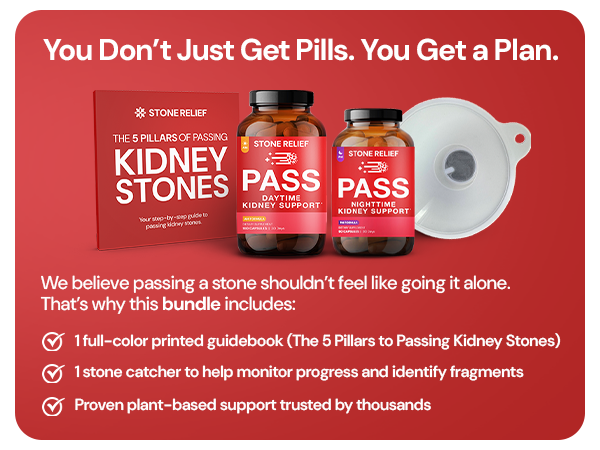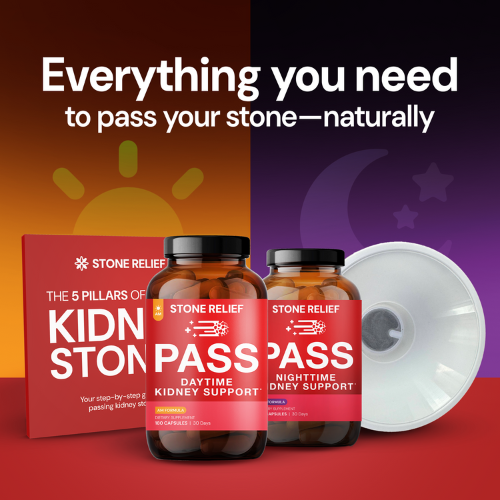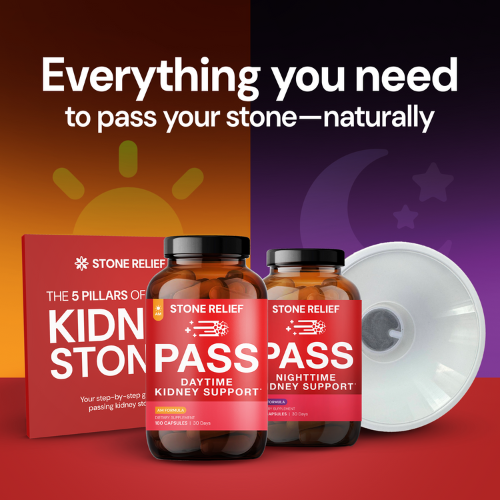Low Citrate and Kidney Stones: What You Need to Know
If you're struggling with recurring calcium or uric acid kidney stones, low citrate could be a major hidden cause. In this blog, I explain what citrate is, why it matters, and simple strategies you can use to correct low levels and lower your risk of stones.
Key Takeaways:
-
Citrate binds calcium and protects against stone formation
-
Low citrate is common in people with metabolic dysfunction
-
Diet plays the biggest role in citrate levels
-
Fixing your citrate often starts with fixing your food
If you've been suffering from recurrent calcium or uric acid kidney stones, low urinary citrate may be a big part of the problem.
Citrate is a compound that comes from citric acid. When most people think of citric acid, they immediately think of citrus fruits—and that's correct! These fruits are a major source.
However, our body can also produce citrate internally through something called the Krebs cycle, or the citric acid cycle. This happens inside our cells when we process nutrients from food.
That said, the largest impact on citrate levels comes from the foods we eat, especially citrus fruits.
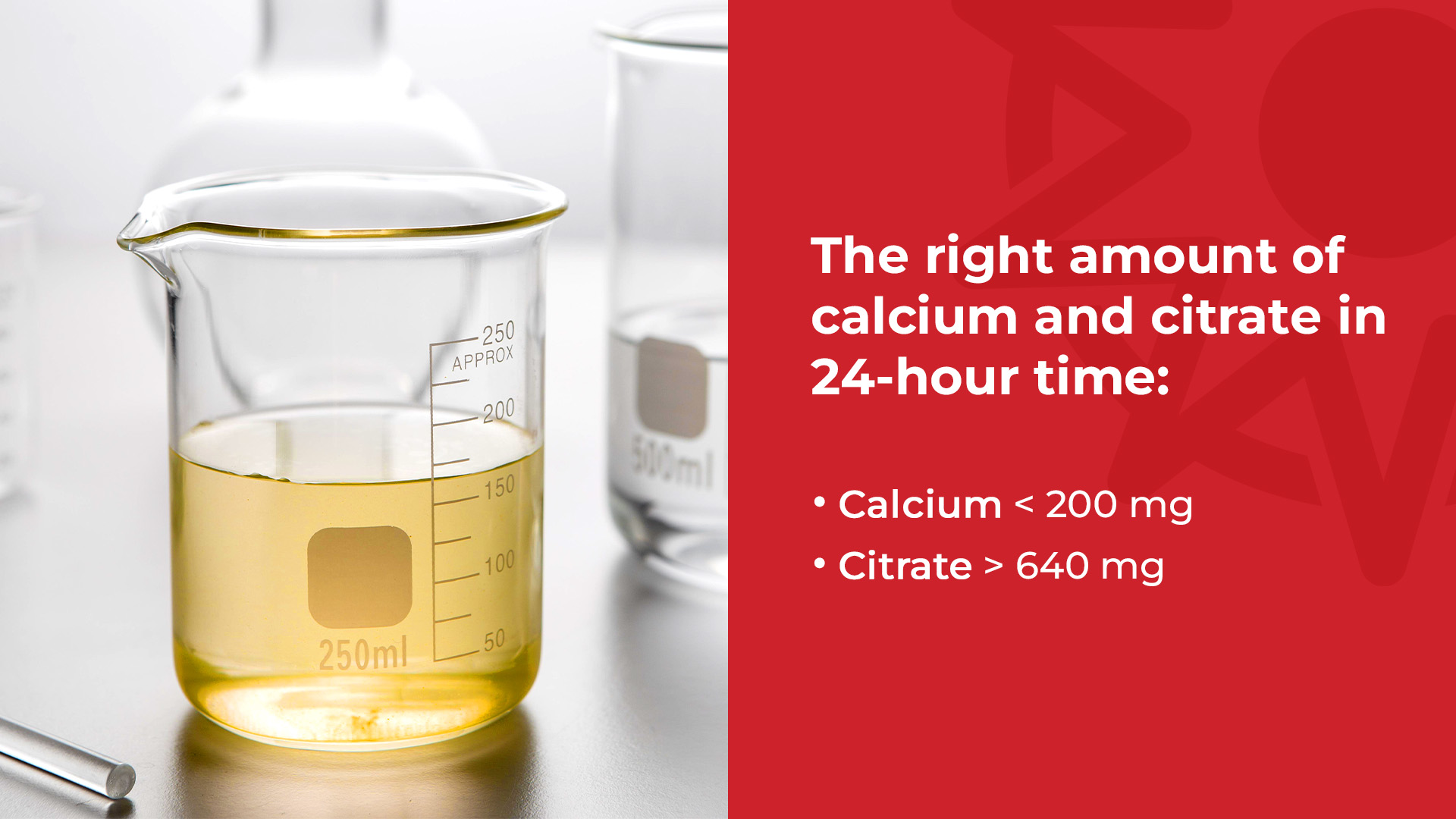
Why Citrate Matters for Kidney Stone Risk
Citrate plays a protective role when it comes to both calcium oxalate stones and uric acid stones. That's why it's measured in a 24-hour urine test.
When looking at your test results, your goal is to have a citrate level greater than 320 mg/L or a daily total of around 650–700 mg.
If your citrate is lower than this, it's called hypocitraturia. This means you're lacking enough citrate in your urine to protect against stone formation. 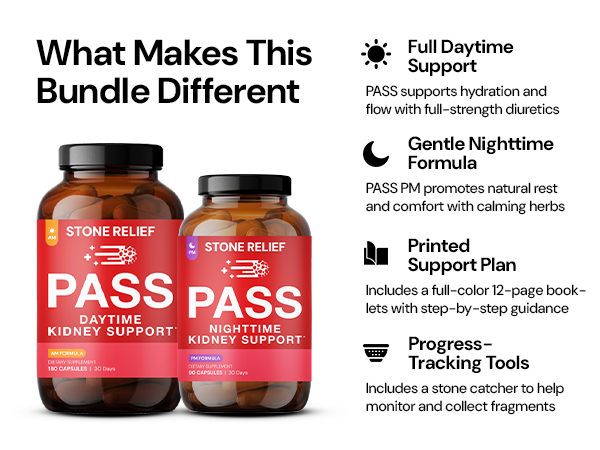
🛒 Check Price & Purchase Stone Relief Pass AM/PM Bundle on Amazon
How Citrate Helps Prevent Kidney Stones
For Calcium Oxalate Stones:
These stones form when calcium and oxalate are in excess in your urine. They bind together when the urine becomes supersaturated, just like adding too much powder to a glass of water.
Citrate helps by binding to calcium, which removes calcium from being available to bind with oxalate. This reduces the chances of a stone forming.
Citrate also boosts something called Tamm-Horsfall protein, which helps slow down crystal growth inside the kidneys.
For Calcium Phosphate Stones:
Citrate could potentially help by binding calcium too. But there's a catch: if you alkalize your urine too much, it can favor phosphate crystal formation over oxalate.
For Uric Acid Stones:
Uric acid stones only form in acidic urine (pH below 6 to 6.5).
Citrate helps by raising the urine pH closer to neutral, reducing uric acid stone risk.
But again, too much alkalization increases calcium phosphate stone risk. That's why testing your urine pH regularlyis critical when using citrate as part of your stone prevention strategy.
What Causes Low Citrate?
If your citrate is low, it's often tied directly to your diet.
Poor food choices—especially highly processed foods, sugar, and inadequate intake of real, nutrient-rich foods—are huge drivers of metabolic dysfunction. And metabolic dysfunction wreaks havoc on your citrate levels.
Some other possible causes include:
-
Low potassium intake
-
High sodium (salt) intake over 2.3 grams a day (though salt isn’t the full enemy it's made out to be)
-
Metabolic disorders like distal renal tubular acidosis
-
Certain medications, like thiazide diuretics or ACE inhibitors
If you're working hard on your diet but your citrate still won't improve, it's worth reviewing any medications you're taking with your doctor.
🛒 Check Price & Purchase Stone Relief Pass AM/PM Bundle on Amazon
The Truth About Citrate, Metabolism, and Kidney Stones
Here's the reality: kidney stones are mainly caused by two things.
First, genetic or metabolic limitations.
If you form calcium oxalate stones, you probably lack the metabolic machinery to handle oxalate properly. Evolutionarily, your ancestors may not have needed it because they weren't eating much plant material.
Second, modern metabolic dysfunction.
About 87% of the Western world has some level of metabolic disease—whether it's insulin resistance, obesity, diabetes, or hypertension. These conditions completely disrupt your body's normal systems, including how citrate is managed.
What to Focus on Instead of Just Chasing Citrate
If you're serious about preventing kidney stones, here's the truth:
Citrate becomes almost irrelevant if you fix your diet.
-
Cut out oxalate if you form calcium oxalate stones.
-
Eliminate sugar and processed foods. Think of them as recreational drugs—legal, but devastating for your health.
-
Focus on a nutrient-dense, bioavailable diet, primarily built around animal-based foods.
-
Use seasonal, geographically appropriate fruit in moderation if your body tolerates it.
When you fix your diet to match your evolutionary needs, your citrate levels—and your stone risk—naturally take care of themselves.
🛒 Check Price & Purchase Stone Relief Pass AM/PM Bundle on Amazon


